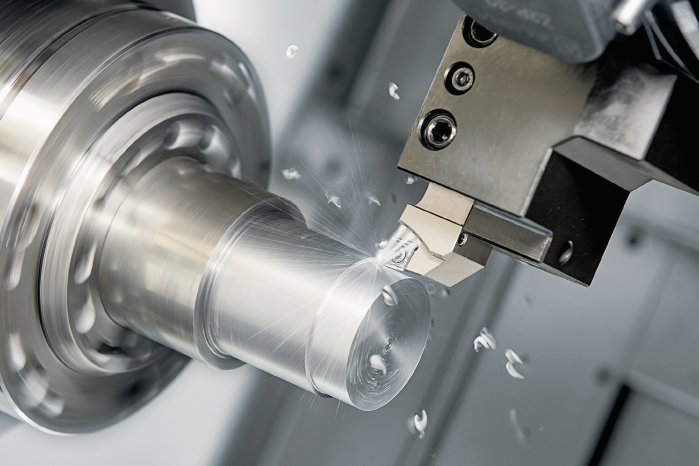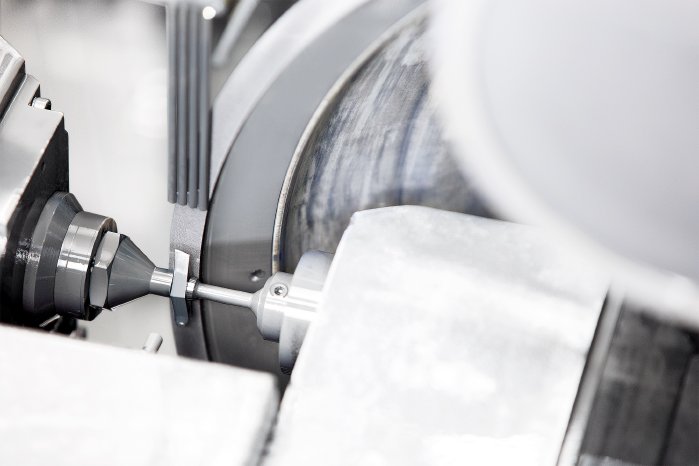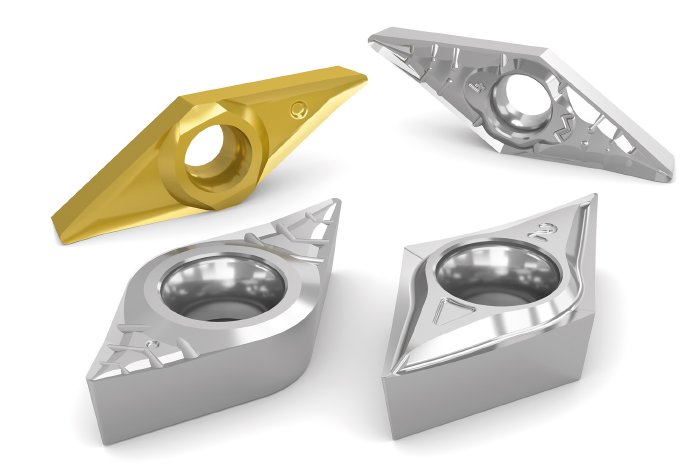"Economic efficiency very much depends on the careful selection of tools, especially in critical situations when workpieces require sensitive machining in turning operations, or when quality must match new applications immediately in terms of long-term precision," says Product Manager Marco Staiger from Arno Werkzeuge. For example, it is not advisable to use standard tools to machine unstable, thin or thin-walled workpieces. Neither are they the right choice off the bat for machining plug contact pins for EV charging stations. This is because some results require rework to achieve the desired surface quality. This quickly becomes obvious with plug contact pins for EV charging stations. If you have ever inserted a charging plug into your car, you know how precisely the pins engage (up to 9 of them), but also how much force is needed. Even if you insert the plug at an angle, it still engages precisely. Besides the precision of the pins, they also require a certain degree of stability. Only then can the cables, some of which are water-cooled, transmit the high electric current. The demand for pins crafted to such perfection is growing exponentially. So let's look at how Arno Werkzeuge sets the stage.
Manufacturer provides a deep insight into its production methods
What are known as high-positive indexable inserts from ARNO Werkzeuge achieve their best results with special tasks and materials. We spoke to the manufacturer who explained to us their special features. For the past 30 years, the Swabian company - now run by the third generation of the owner families - has focused on how to make cutting tools better. Indexable inserts have been developed, ground and rounded in-house since the 1990s. The experts have therefore amassed their own grinding expertise which extends far beyond just the special grinding machines. At the same time, the volume of grinding work has grown continuously, so that about 2.5 million inserts can now be ground annually.
All high-positive indexable inserts that leave the company are generally made of a special substrate with an ultra-fine grain. However, they do not wish to reveal any more details. The insert circumferences are ground to give them particularly sharp cutting edges. In addition, they have a special geometry. This ensures that chips break at the desired point or can be evacuated in the right direction, as required. The coating depends on the material to be machined. This extends tool life during machining even more. In close cooperation with application consultants from Arno Werkzeuge, customers then receive exactly the right tool for their process since Arno is happy to pass on its knowledge to the manufacturing process. This is confirmed by designer Michel Sprajcer: "We always keep a large selection of insert blanks in stock for our customers. We then produce directly from specs for a particular workpiece. Our capability is flexible, precise and fast."
Experienced advisors help you find the right tool
All these measures ensure that high-positive indexable inserts are sufficiently sharp to keep the cutting force low. This is why using these specially ground and polished cutting tools reduces cutting pressure on the workpiece during machining. In addition, the optional edge-honing provides excellent edge stability. This makes the inserts extremely sharp and stable at the same time. The tool is not displaced by an unstable, thin or thin-walled workpiece, no matter how narrow the workpiece is and what material it is made of. The inserts achieve smooth surfaces on many components, thus avoiding any rework.
Another example is the super material titanium. This material is often used in medical engineering and in the aviation industry, where it has to meet special requirements in terms of quality and tolerances. "If you don't choose the tools carefully, you run the risk of prices and costs quickly spiralling out of control," says Staiger from experience. In addition, there is another important effect. These flutes decrease the heat generated during machining, which is highly effective to counter the poor thermal conductivity of the exotic material. If very little heat is generated and the amount of heat is further reduced by optimised coolant supply, tool life is longer or, by implication, the cutting speed Vc can be increased. What they all have in common is that they are ideal for tough materials thanks to their excellent notch wear and heat resistance.
Ideal for bone screws in medical engineering
High-positive indexable inserts have become indispensable, especially for titanium, which is the material of choice in medical engineering. This is also confirmed by a customer who manufactures bone screws, among other things. “In particular, high-positive indexable inserts never fail to impress us since they produce extremely good surface finishes and have a long tool life,” explains Alexander Rentschler, an advisor at Arno: "These specially developed high-positive geometries help us achieve optimum machining results using high-performance cutting materials - another reason is because there is less vibration during the turning process." This is what the customer says, adding that "the surface quality is so high that downstream processes are not needed." This is important to minimise germ adhesion to the products which later have to be cleaned and sterilised.
Conclusion: We are impressed
If you want to be on the safe side when selecting tools to machine critical workpieces or materials, it is best to look around for a manufacturer of high-positive indexable inserts. Some also provide their assistance by passing on their application experience in an advisory capacity. At Arno Werkzeuge, we were impressed by the meticulousness, innovative strength and professionalism that go into the development and manufacture of inserts. High-positive indexable inserts can be used in most demanding and complex situations without any problem.



